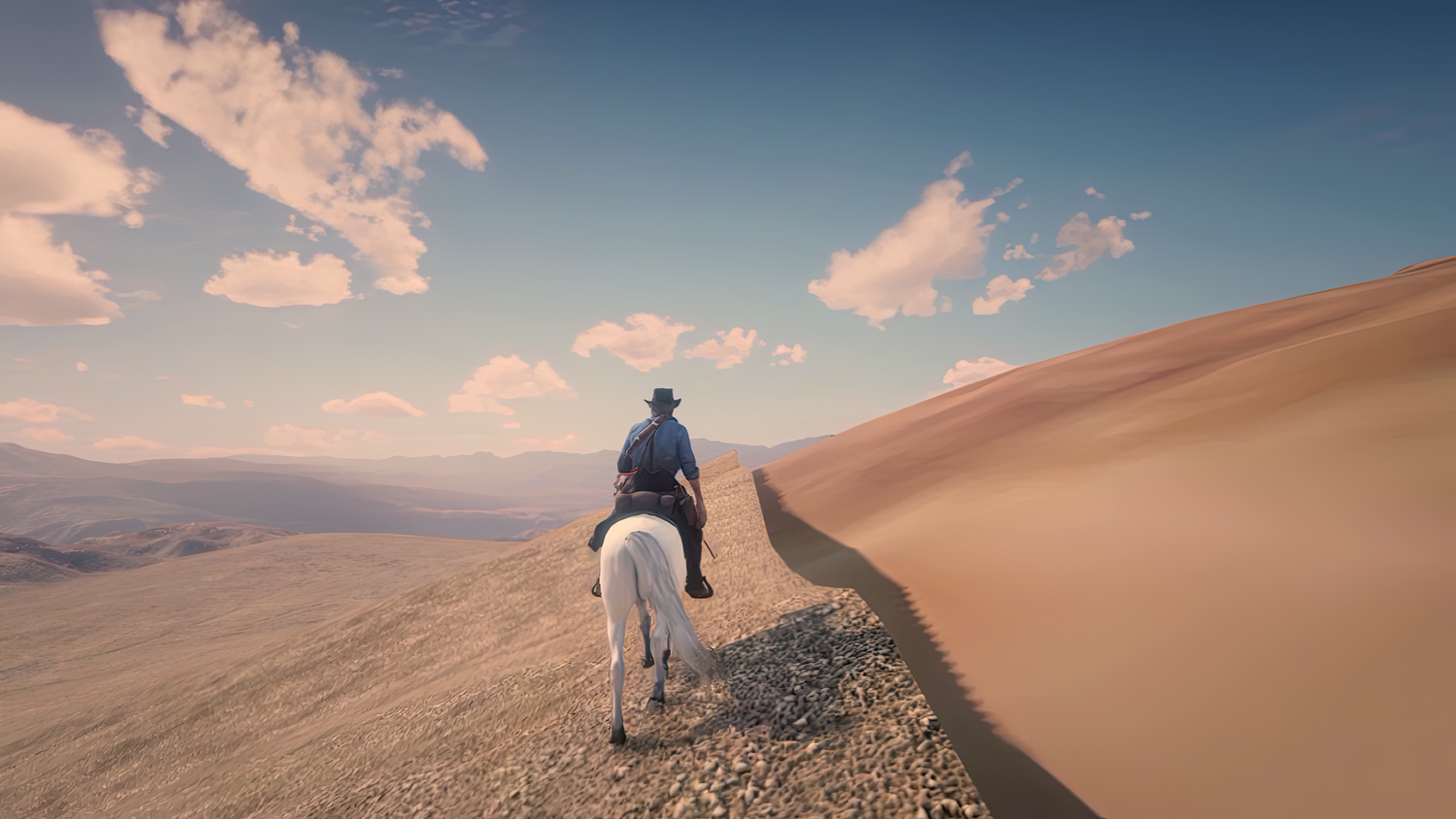What beliefs, ideologies, and values inform the most popular video game set in the Wild West? Elisa Sanchez, the author of Au-delà du désert flou, plus aucune sauvegarde provides thought-provoking answers in a compelling essay in two parts.
Patreon-exclusive content
〰️
Patreon-exclusive content 〰️
Watch Elisa Sanchez’ Au-delà du désert flou, plus aucune sauvegarde n’est possible
the first part of this essay is available here
Wild Wild West
In English, the word frontier does not only characterize the demarcation between two territories or two things, but designates a region or wilderness located on the edge or beyond a populated territory. This frontier is not a political or even a geographical delimitation. It is an area in motion, a space that moves with the population growth of white settlers. It is the West, with a capital W, always far, far away. It is a goal, a challenge, vast enough to absorb thousands of settlers and yet remain unconquered, eternally offering new adventures to those willing to risk their lives to experience them all. The frontier is a symbolic place, real and imaginary at the same time. It does not matter that its conquest was won at the expense of the land and its occupants.
In his 1893 article, the historian Frederick Turner discusses the importance of the frontier and westward expansion in the formation process of the American people: their identity and core ideas (e.g., democracy) are based on the idea of eradication. Specifically, the conquest of the West would consist of a double overcoming of borders, not only geographical, but also internal. The widespread popularization of his thesis on the frontier, which would make the one who overcomes it gain strength and individuality, has influenced a great number of narratives and folk stories, which describe the mythical Wild West by highlighting characters that are bearers of individualism and violence. Turner ignores gender and race, and says little about class. He sees the natives as an expression of the wilderness to be conquered at all costs. Like mountains, bears, and wolves, indigenous people consist of an obstacle to westward progress and self-realization.
The Indian was a common danger, demanding united action.
(Frederick Jackson Turner, The Significance of the Frontier in American History, Martino Publishing, [1920] 2014)
Turner, and many others with him, subscribe to the idea that conquest and killing are conducive of human progress. They are a necessary price to pay, regrettable perhaps, but non negotiable. Only genocide can make humanity evolve. But by making the frontier an exclusively male and white phenomenon - thus excluding women and racialized people -Turner postulates that the only point of view that matters is that of the white settlers. To tell a story is to organize reality by assigning a unity of time and place, to allow some voices and silence others. The myth of the frontier provides a plot, as well as a direction: straight for the sun that sets the sky ablaze with purple and scarlet. But if one stares for too long ay the sun, one becomes blind.
On December 29, 1890, the U.S. Army surrounded a camp of Miniconjous Sioux at Wounded Knee Creek, South Dakota. The soldiers searched the camp for weapons; caught in the grip of five hundred soldiers and four cannons, the Miniconjous had no choice but to comply. But during the search, a shot rang out and the army opened fire and machine-gunned the Miniconjous. Three hundred corpses were dumped a few days later in a mass grave; nearly half were women and children. While the Bureau of Indian Affairs attempted to portray the destruction of Wounded Knee as a battle, later investigations clearly established that it was a massacre; the Miniconjous Sioux were outnumbered, starved and unarmed. Yet some twenty soldiers who participated were awarded the Medal of Honor, the highest award given to a member of the U.S. armed forces. It was not until 2019 that these awards were rescinded.
I am Arthur Morgan, a strong, violent white man with a thick beard and two guns. I know this body is not mine, and yet. Where does Arthur Morgan, the avatar who rides tirelessly under beautiful sunsets, and Elisa Sanchez, who plays the game over and over again, begin? Arthur is not only the main character in the story I am being told; as a player, I am an active participant in the story and embody the character. His actions are my own, and while the roads we travel have been laid out by others, I choose to travel them…
This is a Patreon exclusive article. To read the full text consider joining our Patreon community.


